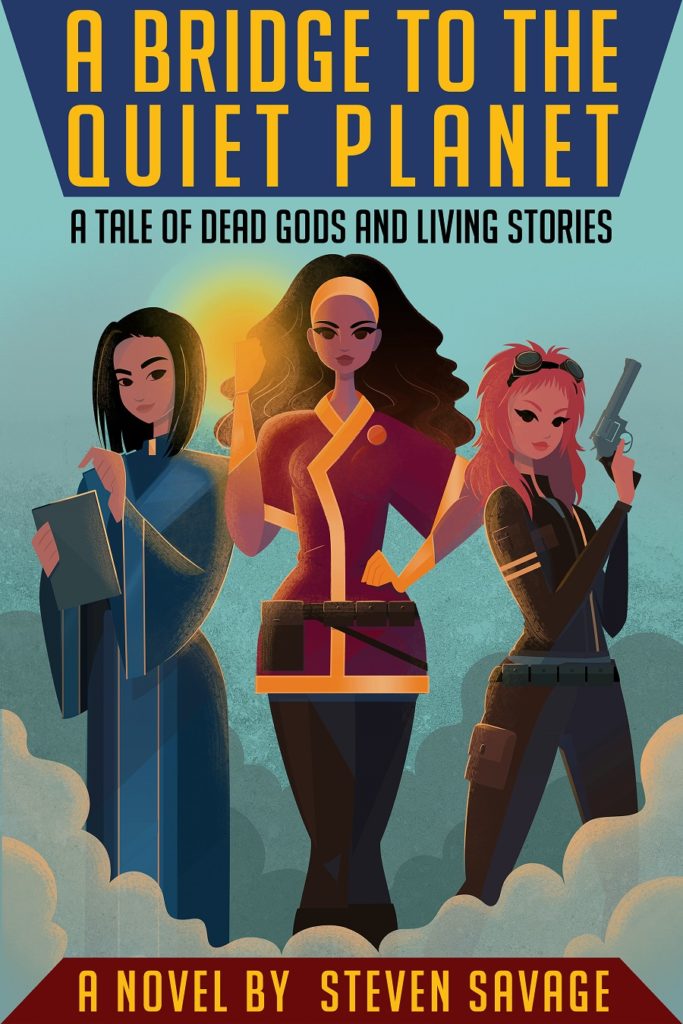(This column is posted at www.StevenSavage.com and Steve’s Tumblr. Find out more at my newsletter.)
All right, A Bridge To The Quiet Planet is out. Done. So it was a bit later than I expected, and the final run on it gave me food for thought.
WATCH SWITCHING BETWEEN SOFTWARE: I found some annoying artifacts from moving from one piece of software to another – there can be subtle differences. I had to do some annoying search and replaces.
THINK OVER STYLISTIC CHOICES EARLY AND FOLLOW UP: You may make certain formatting choices – like bolding certain things (business cards or telepathy), certain uses of quotes, etc. Make sure you’re consistent. I found ONE case of not following my own formatting, and I nearly missed it.
DO A SERIOUS READ-THROUGH AND CORRECTION EARLY: I wish I did this. Take, say, an early draft, and edit it as if it’s for print. This will help you find your mistakes, issues, common problems, and get plenty of distracting tiny errors out of the way – so you can edit.
KEEP A LIST OF ERRORS YOU FIND OR WORRY ABOUT: This helped me a lot. As I did my final readthroughs, I kept a list of suspicious things or choices I want to review. This let me do some amazing fine editing easy because then I could globally search.
SEARCH AND REPLACE IS YOUR FRIEND IF YOU DO IT STEP BY STEP: Global search and replace can mess up your document (as we all know). However going slow, reviewing EACH possible replacement (or doing it by hand for each found) let’s you avoid problems. Also it acts as a second review!
YOU CAN ONLY DO SO MUCH: At some point you can’t edit forever. So don’t. Learn your limits. In fact . . .
GO EBOOK FIRST: This is a trick I evolved from a friend. Do an ebook first, and distribute it. It gives you immediate feedback, then you can update the ebook quickly. Go print a bit later (like I’m doing it 4-6 weeks later).
KEEP A “LIVE” DOCUMENT: A big advantage of going ebook first is feedback. So I keep a “Live” document I’m always editing as a core, representative document. That will become the print book – but if I find errors I modify all 3 documents (ebook, Print, Live) for later.
So lots of lessons to share. I’m certain I’ll have more to share – I think I need to make a kind of writing checklist sometime!
Steven Savage
